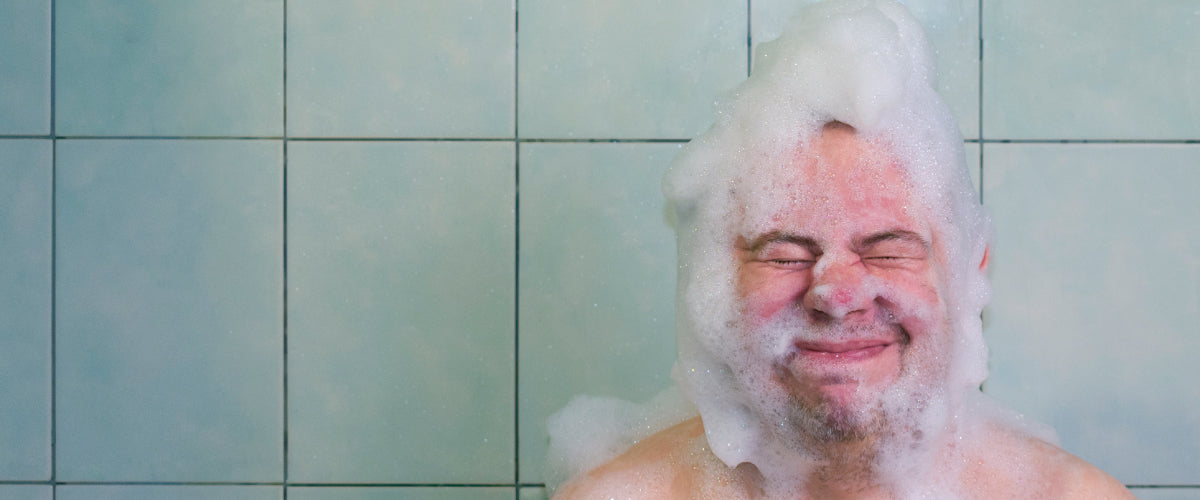Confused about all the fuss around sulfate-free shampoos and other toiletries?
We give you the low-down on the ingredients those with sensitive skin might want to avoid!
What Are Sulfates?
When people talk about sulfates (also known as sulphates) in cosmetics, they usually mean Sodium Lauryl Sulfate (SLS) or its variants.
SLS is a very common chemical ingredient used as a surfactant or detergent; it foams up and collects dirt so it can be washed off the skin or hair.
What’s The Problem With Using Sulfates In Shampoo?
The trouble is that SLS is actually too powerful a detergent; along with the dirt it strips away the natural oils your skin needs to protect itself, leaving skin damaged and vulnerable to irritants.
If you have eczema, psoriasis, seborrheic dermatitis or dry, sensitive skin, sulfates in your shampoo can cause itching, inflammation and rashes on the scalp.
How Do I Recognise Sulfates In Ingredients Lists?
Sulfates can be listed as Sodium Lauryl Sulfate (SLS), Sodium Laureth Sulfate (SLES) or Ammonium Lauryl Sulfate (ALS).
What Natural Alternatives Are There To Sulfates?
Sulfate-free shampoos use much milder surfactants to do the same foaming job as SLS/SLES/ALS. Look out for names such as coco- or decyl-glucoside. These are gentle, biodegradable, plant-based, non-ionic surfactants derived from sugar, corn, soy, castor oil or coconut.
Recommended Hair and Scalp Care Products
Balmonds Natural Shampoo & Body Wash
with calendula & chamomile
Balmonds Scalp Oil
with tea tree, nettle, borage & rosemary
